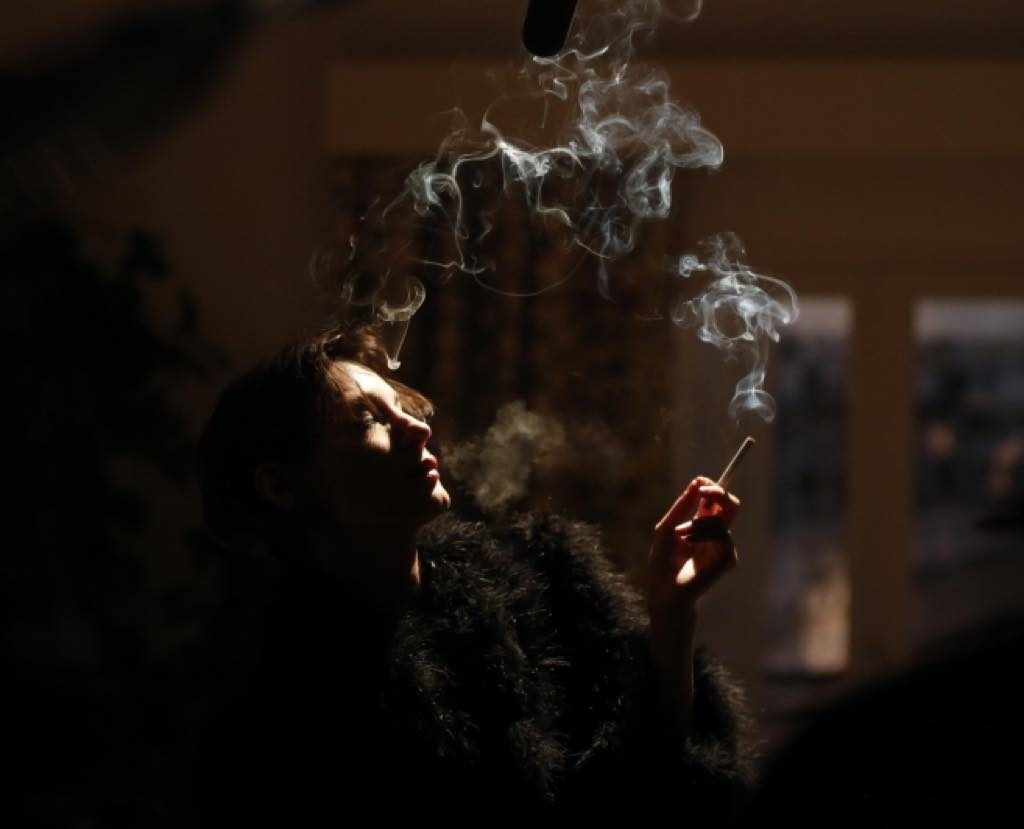Mathieu Amalric’s Barbara is less of a biopic than a worshipful homage to the chanteuse who won the hearts of the French with her plaintive songs of heartbreak and incest.
So what, you might say, who needs another straightforward biopic anyway? The problem with the film is that it is almost impossible to separate the real Barbara (born Monique Andrée Serf in 1930; died 1997) from the actress Brigitte (brilliantly played by Jeanne Balibar) in this film-within-in-a-film about the making of a biopic about Barbara by director Yves Zand (played by Amalric).
The confusion mounts to the point where the viewer (especially a non-French viewer who doesn’t already know everything there is to know about Barbara) often can’t distinguish between Balibar playing Brigitte playing Barbara and archival footage of the real Barbara. The result is incoherent and, often, boring.
Amalric’s mawkish role consists almost exclusively of staring googly-eyed at the actress, Brigitte, in her role as Barbara, awestruck by the way she seems to metamorphose into a reincarnation of the singer. At one point, he even bursts into tears. Okay, I get it: he’s a big fan. (Adding to the confusion between fiction and reality, Amalric and Balibar were once married and have two children together.)
Balibar is indeed exceptional in the role, and one of the most interesting aspects of the film is the way it shows how an actor prepares for a role, in this case almost assuming the personality of her character.
To Amalric’s credit, the movie is visually stylish and offers many beautiful moments, especially when the real Barbara (I think) sings. It is sure to revive interest in the singer, who survived many horrors in her life (her Jewish family had to go into hiding in France during World War II, and she was molested by her father when she was 10), and who is still revered by the French.
If you decide to go, I recommend reading up on Barbara beforehand and listening to her music. You may become a fan yourself.
That’s my partial thumbs down. Now let’s hear another point of view from reader and contributor Susan Luraschi:
I was disoriented (to say the least) at the beginning of the film. Even a bit angry, asking myself, why is he making this so complicated? And then I just let go and followed the flow, trying not to be judgmental.
Barbara is an elusive creature, and I think Amalric had that in mind when he chose to use long takes that feel so spontaneous and chiaroscuro lighting which replicates that of the theater and her life. And yes, why do another boring biopic about such a poetic figure?
I feel as though I got little glimpses of her, as if peeking through holes in a curtain, not getting the whole picture. That’s echoed in a shot of her returning to see the family home, where she looks through the mail slot. You know some bad stuff had happened to her.
I didn’t know she had been abused by her father, but this comes out in the film. She was a mesmerizing person, and Amalric shows that in her interactions with others. He also wonderfully depicts the balance between someone in complete control of her “career” and out of control for everything else.
Yes, Amalric’s character is making a love-film about a famous icon and swooning over her. Yes, it’s messy. Yes, he knows almost too much and wants to get it all in, but there were moments of magic, and I was very moved. Love is so rare these days.
Favorite
